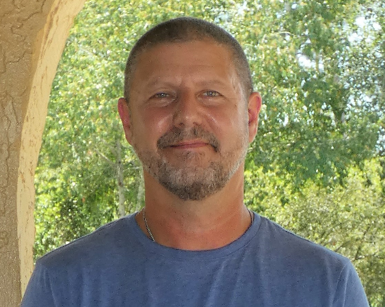Webinar - Conformal Coatings- Application & Best Practice Optical Microscopy Inspection Methods
Sponsor: IEEE Boston/Providence/New Hampshire Reliability Chapter
Please visit www.ieee.org/bostonrel
Host: IEEE Boston/Providence/New Hampshire Reliability Chapter
FREE Webinar
High reliability electronic assemblies and sub-systems require protection from the effects of moisture and corrosive contaminants that are ever present in the environment by which they are expected to perform. Methods to protect critical electronics include sealed dry nitrogen filled shelters, enclosure environment control (humidity & temperature) and the use of various conformal coating chemistries.
While conformal coatings do NOT provide a hermetic seal from the environment, they are utilized to provide a hydrophobic moisture barrier that significantly reduces moisture absorption over time. Conformal coatings comprised of Polyurethane, Epoxy, Acrylic, Silicones & Poly-Para-Xylene (Parylene), have material advantages & disadvantages based on cost, process and the level of desired environmental protection. Material property selection factors include ease of application, rework, uniformity of coverage, dielectric isolation, moisture, chemical, fungal and resistance to UV exposure breakdown.
Topics Covered-
- Background and overview of various conformal coatings
- Characteristics, advantages and challenges of coatings and methods
- Other techniques which utilize custom Chemical Vapor Deposition (CVD) processes.
- Review an example of a sub-assembly Acrylic conformal coating Inspection process
- Use of UV Tracers and best practice optical inspection techniques used confirm conformal coat uniformity and coverage
Date and Time
Location
Hosts
Registration
-
 Add Event to Calendar
Add Event to Calendar
Loading virtual attendance info...
- Contact Event Host
-
Michael W. Bannan, Chair
IEEE Boston/Providence/New Hampshire Reliability Chapter
Speakers
 Aaron C. DerMarderosian, Jr. of Raytheon- Intelligence & Space
Aaron C. DerMarderosian, Jr. of Raytheon- Intelligence & Space
Conformal Coatings- Application & Best Practice Optical Microscopy Inspection Methods
High reliability electronic assemblies and sub-systems require protection from the effects of moisture and corrosive contaminants that are ever present in the environment by which they are expected to perform. Methods to protect critical electronics include sealed dry nitrogen filled shelters, enclosure environment control (humidity & temperature) and the use of various conformal coating chemistries.
While conformal coatings do NOT provide a hermetic seal from the environment, they are utilized to provide a hydrophobic moisture barrier that significantly reduces moisture absorption over time. Conformal coatings comprised of Polyurethane, Epoxy, Acrylic, Silicones & Poly-Para-Xylene (Parylene), have material advantages & disadvantages based on cost, process and the level of desired environmental protection. Material property selection factors include ease of application, rework, uniformity of coverage, dielectric isolation, moisture, chemical, fungal and resistance to UV exposure breakdown.
Topics Covered-
- Background and overview of various conformal coatings
- Characteristics, advantages and challenges of coatings and methods
- Other techniques which utilize custom Chemical Vapor Deposition (CVD) processes.
- Review an example of a sub-assembly Acrylic conformal coating Inspection process
- Use of UV Tracers and best practice optical inspection techniques used confirm conformal coat uniformity and coverage
Biography:
Aaron DerMarderosian is a Principal Multi-Discipline engineer in Raytheon Technologies Intelligence & Space business segment, working in the failure analysis laboratory Largo, FL. He has worked in engineering for 30 years focused on: reliability analysis & assessment, failure investigation, product / program FRACA, design verification test, systems & circuit analysis. Investigation activities include counterfeit analysis, detection & avoidance methods, hardware security assessments and root cause analysis of failed components and electronic assemblies. He is a senior member of the IEEE, member of SMTA & served as IEEE Boston Reliability chapter chair (2006-2008) & AdCom officer for 10 years. Aaron received multiple individual & team achievement awards, Engineering technical honors in 2004 & 2007 and a technical innovation & inventors award in 1991 (Raytheon), leading to a patent. Aaron has presented at several technical conferences & IEEE events. He has a B.S. degree in Engineering from Northeastern University (Boston, MA.).
Email:
Agenda
11:00 AM Technical Presentation
11:45 AM Questions and Answers
12:00 PM Adjournment
The meeting is open to all. You do not need to belong to the IEEE to attend this event; however, we welcome your consideration of IEEE membership as a career enhancing technical affiliation.
There is no cost to register or attend, but registration is required.

